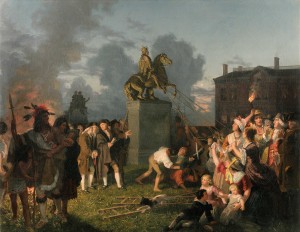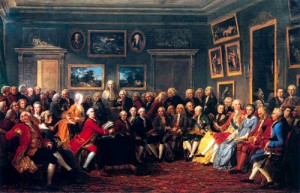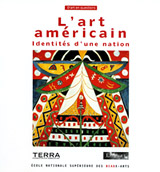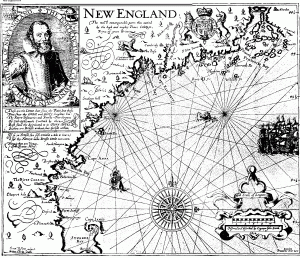Posté par Sarah Feron, le 11 mars 2015;
- Date et lieu de la journée d'études : 01/04/2015, Paris, INHA
 Erased, Replaced, Omitted, Denied: American Art and Negation Erased, Replaced, Omitted, Denied: American Art and Negation
Johannes Adam Simon Oertel, Pulling Down the Statue of King George III, New York City, 1852-1853
Journée d’études organisée conjointement par la Terra Foundation for American Art et l’Institut national d’histoire de l’art En partenariat avec l’université Paris Diderot-Paris VII, l’université Paris-Ouest Nanterre La Défense, l’université François-Rabelais de Tours, le laboratoire de recherches sur les cultures Anglophones (LARCA) et le HAR EA 4414 – Université Paris-Ouest Nanterre La Défense. Organisation : Sarah Archino (INHA) sarah.archino @ inha.fr
The journée d’études, organized under the auspices of the Terra Foundation for American Art, is co-sponsored by the Institut national d’histoire de . . . → En lire plus
Posté par Sarah Feron, le 11 mars 2015;
- Date et lieu de la conférence : 31/03/2015, Paris, INHA
En 1770, les habitants de New York, alors encore sujets de la couronne britannique, érigèrent une statue équestre au roi George III. En 1776, ils la détruisirent violemment. Suite à une lecture faite en public de la Déclaration d’indépendance, la foule fit chuter la statue de son haut piédestal, gratta l’or à sa surface, la traîna en morceaux à travers les rues, avant de la faire fondre pour confectionner des balles à l’usage de l’armée révolutionnaire. Mais si la statue disparut, elle ne quitta pas pour au tant la mémoire des Américains. Entre la fin du dix-huitième siècle et le début du vingtième siècle, le récit de la destruction de la . . . → En lire plus
Posté par Laëtitia Pierre, le 24 juin 2012;
- Date et lieu : 6 et 7 juin 2013, Maison des Sciences de l'Homme d’Aquitaine, 6 et 7 juin 2013, Maison des Sciences de l'Homme d’Aquitaine
 Académies, loges maçonniques, clubs et salons, société de lecture ou de débats, lycées et « musées » tel celui de Bordeaux créé en 1783, les lieux de sociabilité se multiplient aux XVIIe et XVIIIe siècles, alliant au plaisir de la convivialité et à l’art de la conversation une visée scientifique d’élaboration et de discussion des savoirs. Une abondante littérature normative n’a eu de cesse de définir les contours d’une sociabilité idéale. Plutôt qu’aux manuels de civilité ou de bienséance en eux-mêmes, on s’intéressera au fonctionnement effectif, quotidien, de ces espaces de sociabilité, aux mécanismes d’interaction qui confirment, ou parfois infirment, la validité de ces modèles. On s’intéressera à l’extension . . . → En lire plus Académies, loges maçonniques, clubs et salons, société de lecture ou de débats, lycées et « musées » tel celui de Bordeaux créé en 1783, les lieux de sociabilité se multiplient aux XVIIe et XVIIIe siècles, alliant au plaisir de la convivialité et à l’art de la conversation une visée scientifique d’élaboration et de discussion des savoirs. Une abondante littérature normative n’a eu de cesse de définir les contours d’une sociabilité idéale. Plutôt qu’aux manuels de civilité ou de bienséance en eux-mêmes, on s’intéressera au fonctionnement effectif, quotidien, de ces espaces de sociabilité, aux mécanismes d’interaction qui confirment, ou parfois infirment, la validité de ces modèles. On s’intéressera à l’extension . . . → En lire plus
Posté par apahau, le 17 décembre 2011;
 Annuaire des doctorants Annuaire des doctorants
Arts des Amériques
NB : la liste doit encore être complétée …
► Agathe Cabau (Université Paris 1 Panthéon-Sorbonne)
Titre de la thèse : « L’iconographie amérindienne aux salons parisiens et aux expositions universelles françaises (1800 à 1914) »
Directeur : Darragon, Eric Unité de recherche : HiCSA (Histoire culturelle et sociale de l’art), Ecole Doctorale 441 Histoire de l’art (ED441), Adresse email : agathecabau (at) gmail.com
Présentation de la thèse : L’analyse de l’iconographie amérindienne aux salons parisiens et aux expositions universelles interroge la culture visuelle d’une époque, les vagues d’influences, l’impact de la littérature. Les représentations du . . . → En lire plus
Posté par Olivier Bonfait, le 23 octobre 2011;
- Date limite : 15 janvier 2012, 15 janvier 2012
TERRA FOUNDATION GRANTS, PRIZE and SUMMER RESIDENCIES
[1] Terra Foundation for American Art Publication Grants
 PUBLICATION GRANTS [NEW AREA OF FUNDING] These grants provide support for publication projects on historical American art (circa 1500–1980) that make a significant contribution to scholarship and have an international dimension. “International dimension” varies by project, but includes translations of important texts on American art; publications that are written by non-U.S. scholars or that have a significant number of non-U.S. contributors; and publications with a focused thesis exploring American art in an international context. Applications are judged competitively on an annual basis; projects must be under contract for publication. Books may receive a grant up to $30,000; articles may receive a grant . . . → En lire plus PUBLICATION GRANTS [NEW AREA OF FUNDING] These grants provide support for publication projects on historical American art (circa 1500–1980) that make a significant contribution to scholarship and have an international dimension. “International dimension” varies by project, but includes translations of important texts on American art; publications that are written by non-U.S. scholars or that have a significant number of non-U.S. contributors; and publications with a focused thesis exploring American art in an international context. Applications are judged competitively on an annual basis; projects must be under contract for publication. Books may receive a grant up to $30,000; articles may receive a grant . . . → En lire plus
Posté par Matthieu Lett, le 26 décembre 2010;
- Date limite : 15 janvier 2011
 The Terra Foundation for American Art is offering, in partnership with the Institut national d’histoire de l’art, the Courtauld Institute of Art, London, Paris, the John F. Kennedy Institut für Nordamerikastudien, Freie Universität, Berlin, and the Zentralinstitut für Kunstgeschichte, Munich, six travel grants for researchers whose research project concerns American art or transatlantic artistic relations prior to 1980. Nationals of all European countries can apply for these grants according to their level of study. The Terra Foundation for American Art is offering, in partnership with the Institut national d’histoire de l’art, the Courtauld Institute of Art, London, Paris, the John F. Kennedy Institut für Nordamerikastudien, Freie Universität, Berlin, and the Zentralinstitut für Kunstgeschichte, Munich, six travel grants for researchers whose research project concerns American art or transatlantic artistic relations prior to 1980. Nationals of all European countries can apply for these grants according to their level of study.
• Three grants of US$5,000 each will be offered to researchers at doctoral level. • Three grants of US$7,500 each will be offered to postdoctoral researchers who have been awarded their doctorate within . . . → En lire plus
Posté par Matthieu Lett, le 26 décembre 2010;
- Date limite : 15 janvier 2011
The Terra Foundation for American Art International Essay Prize recognizes excellent scholarship by a non-U.S. scholar in the field of historical American art (circa 1500—1980). The winning manuscript should advance understanding of American art and demonstrate new findings and original perspectives. It will be translated and published in American Art, the Smithsonian American Art Museum’s scholarly journal, which will also cover the cost of image rights and reproductions, and the winner will receive a $500 award. This prize is supported by funding from the Terra Foundation for American Art.
The aim of the award is to stimulate and actively support non-U.S. scholars working on American art, foster international exchange of new ideas and create a broad, culturally comparative dialogue on American art. To be eligible, essays should focus on historical . . . → En lire plus
|
Équipe Rédacteur en chef : Olivier Bonfait.
Rédacteurs : Elliot Adam (Moyen Age) ; Nicolas Ballet (XX-XXIe siècles) ; Matthieu Fantoni (musées) ; Antonella Fenech Kroke (bourses) ; Vladimir Nestorov (Lettre mensuelle)
Administrateur web : Matthieu Lett.
ancien éditeur : Pascale Dubus
anciens rédacteurs : Gautier Anceau, Sébastien Bontemps, Damien Bril ; Sébastien Chauffour ; Ludovic Jouvet ; Aude Prigot
|
 Erased, Replaced, Omitted, Denied: American Art and Negation
Erased, Replaced, Omitted, Denied: American Art and Negation



